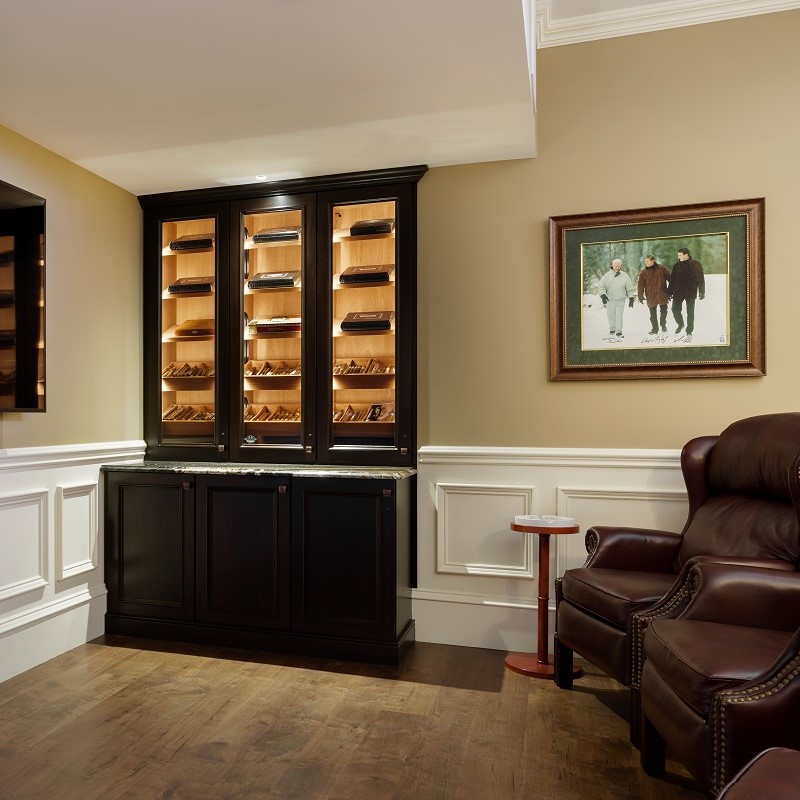What’s the Deal with Filtered Cigars? Unwrap the Details
By Ck Harrington
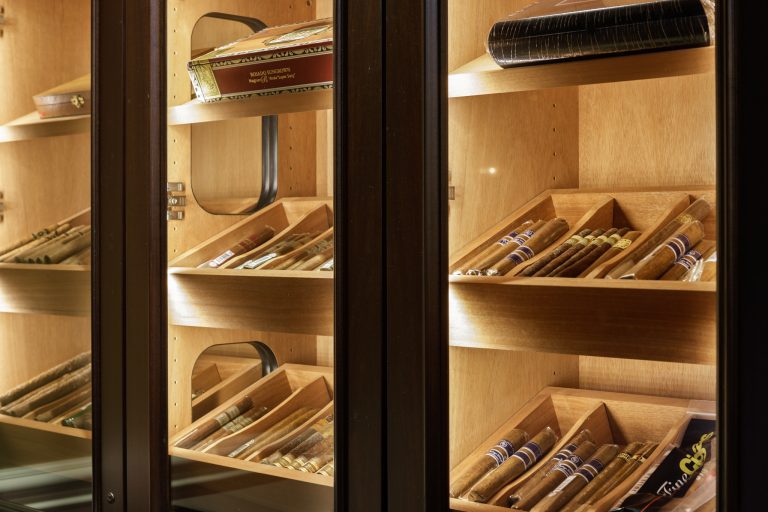
Filtered cigars are a widely available option for seasoned enthusiasts looking to expand their palette, as well as cigar lovers who are new to the hobby. Attitudes on filtered cigars are cloudy because they are often considered synonymous with cigarettes, cigarillos, and little cigars. Filtered cigars are a distinct product. They have the same basic structure as a traditional cigar with the addition of a filter.
Smokers can purchase filtered cigars directly from a vendor or use their own filter at home. Filters change the cigar smoking experience. Filtered cigars come in various flavors that accent their tobacco and have several price points.
Filtered cigars differ from little cigars, which are more comparable to cigarettes. They are more closely related to traditional or premium cigars. Filtered cigars are rolled to be smoked slowly and enjoyed, not inhaled like cigarettes.
Before choosing a filtered cigar, it’s crucial to understand how they function, what they do, their benefits relative to traditional cigars, and how to store them properly.
The Structure of Filtered Cigars
Cigars are made from various parts of the tobacco plant. Manufacturers cultivate a variety of strains of tobacco to create distinct flavors they then blend to create cigars.
Every cigar consists of the cap, foot, and body. The cap is the endpoint that holds the entire cigar together. It’s also the end that is cut off before smoking. The foot is the uncovered end of the cigar that you light. It offers a look into the multiple layers that make up the body.
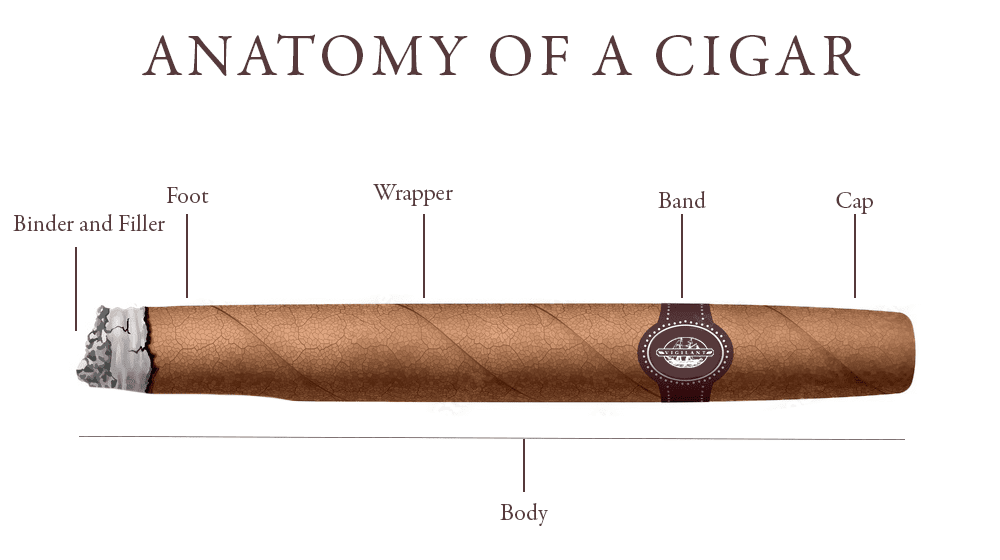
The cigar’s body is the cylindrical portion between the cap and the foot. It’s the part of the cigar where the tobacco is rolled, creating the pleasing aromas that make cigar smoking an enjoyable pastime. The body consists of three different layers of tobacco, the wrapper, the binder, and the filler.
Regardless of whether they are hand or machine rolled, the signature quality of a cigar is its outer layer of tobacco. Unlike cigarettes wrapped in paper, filtered cigars are wrapped in an aromatic tobacco leaf.
Wrapper
The outside layer or wrapper holds the entire body together and is made from a single tobacco leaf. They burn well and evenly, ensuring the cigar is smokable. The leaves are the most expensive part of the cigar because they must be flawless. When you smell the outside of the cigar to assess its quality, you are appreciating the wrapper, which absorbs essential oils from the tobacco inside while also having its own scent.
Binder
The cigar’s middle layer is the binder. It’s critical for the structure and stability of the cigar. Binders are made from a tougher and coarser tobacco leaf found in the middle of the plant. The binder holds the filler together, where much of the cigar’s flavor is found.
Filler
The body’s inner layer is the filler. This is where expert blenders practice their artistry. Usually, three to five types of tobacco taken from the highest part of the plant are mixed to create a cigar’s signature flavor. The filler is responsible for aroma and taste. Manufacturers sometimes add additional flavoring to filtered cigars to give them a distinct taste.
Filters
Filters are attached to the end of filtered cigars during the manufacturing process. They remove pollutants from the smoke, creating a smoother experience. Filters are manufactured using cellulose acetate, a type of plastic.
Some smokers attach filters to premium or hand-rolled cigars. The filter is placed near the cigar cap to remove impurities and particulates before inhaling the cigar’s smoke.
How the Filter in a Cigar Works
Like the filter in an air purifier, cigar filters catch particles and pollutants drawn across its mesh. Once you light your cigar, the filter acts as a barrier between you and the cigar.
Filters work best when placed at the midpoint of the filler. This position forces the smoke to pass through it on its way toward the smoker, catching the smoke while it’s still fresh and toxin rich.
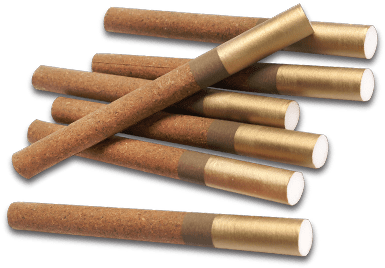
You pull the tobacco and oils that give your cigar its aroma and flavor through the filter when you inhale. As the cigar ages, the oils inside the cigar can solidify and create solids. The filter catches these accumulations, stopping them from entering your lungs.
The Different Types of Cigar Filters
There are several different filters, but they all fall into manufactured or manual categories. Manufactured filters are included when the cigar is rolled and assembled. They are inherent to the cigar’s structure. These filters are akin to the filter on a cigarette. However, cigarette filters are designed to capture hundreds of chemicals. Cigar filters merely trap particulates and other impurities that could enter your lungs. Manufactured filters are usually made of plastic.
Manual filters are applied to the cigar by the smoker, usually as part of a mouthpiece or tip. You can purchase a variety of filters, many with carbon mesh, that affix to your cigar cap. They offer you a barrier between the cigar smoke. The mouthpieces come in various materials, including stainless steel, plastic, and ceramic.
Activated carbon, also known as charcoal, filters are also an option. These filters bind to the impurities drawn past them to prevent them from reaching the smoker. Some users consider them preferable because they are biodegradable and better for the environment.
Benefits of Using Filtered Cigars
Filtered cigars’ main benefit is the removal of impurities from the cigar. They reduce the number of microscopic particulates traveling through the cigar and into your lungs. Many smokers feel that filtered cigars are not as harsh as unfiltered cigars. They make the experience more pleasurable for some consumers.
Filtered cigars may also help smokers reduce their nicotine use because the filters remove some of the cigar’s bite. In addition, filtered cigars are a good access point to cigar smoking for new enthusiasts because they are smoother.
Many smokers prefer filtered cigars for their convenience. They typically burn faster than traditional cigars. This makes them ideal for smokers who want to have a cigar but do not have enough time for an extended session to enjoy their cigar.
The Importance of Humidors for Filtered Cigars
Cigars are made from organic material and therefore degrade over time. However, when appropriately stored in ideal conditions, they last longer. Correctly storing your cigars is worthwhile because, just like certain wines, aging changes the subtle flavors of your cigar. Environments with temperature and humidity control optimize cigars’ longevity and flavor.
Humidors are essential for cigar enthusiasts. They provide a controllable environment and the confidence that you can enjoy your cigars at your leisure, instead of rushing to consume them while they’re still smokable.
Generally speaking, store your cigars at 70 degrees Fahrenheit with a relative humidity of 70%. This ensures the cigar maintains its integrity and smokability. Cigars are an investment, and a quality humidor used properly is the best way to preserve your investment.


Our newest desktop humidors – the HumiDoor 75 and HumiDrawer 125
Without proper storage, filtered cigars are vulnerable to deterioration. If the air is too dry, the tobacco leaves will dry prematurely, breaking down. Your cigars will lose flavor and won’t burn properly. Improper storage can also degrade the filler tobacco, creating more particulates that will further tax the filter when you do light up. Learn more about cigar storage from the Vigilant FAQ page here.
Excess humidity can lead to mold. If the humidity is over 80%, cigars are susceptible to fungus, which will spread, infecting other cigars. Moldy cigars are unsafe for consumption and must be trashed and never smoked.
Proper use and maintenance of your humidor are also critical. Mold can quickly transfer and spread to the interior of your humidor. While you can clean your humidor, you may inadvertently damage the humidor’s interior when removing mold.
Vigilant offers humidors for the seasoned aficionado or the budding enthusiast. From desktops to displays, we have both the storage options and the knowledge to help you along on your collecting journey.
Conclusion
Filtered cigars are an excellent option for regular cigar smokers looking for a smooth alternative or new cigar enthusiasts seeking a starting point. Smoking filtered cigars remove potential harshness and throat irritation associated with traditional cigars.
The filters separate potentially harmful particulates and impurities from entering your lungs. Everyone’s tastes differ. Some argue filters do too much, altering the taste of cigars, and others embrace the harshness of unfiltered cigars. Despite varying preferences on taste, the consensus is that filters effectively remove substances that aggravate the lungs, detract from the smoking experience and elevate health risks.
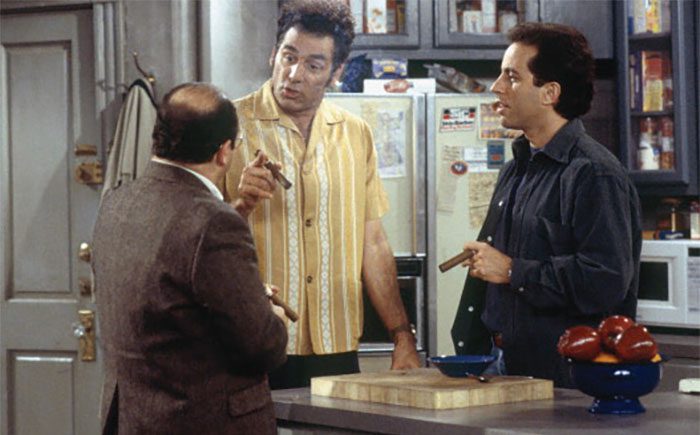
Bio
Ck Harrington is a ball-cap-wearing, dog-loving, adventure-seeking content writer. When Ck is not writing content for clients, he spends his time reading, hiking, camping, or doing anything he can with his dogs. A previous edit of this blog appears on Cheap Cigars 4 Me, an online retailer of cheap and premium cigars. Email CK if you have questions or comments!
Want to work with our sales experts to design the humidor of your dreams? Visit our website and schedule a free virtual design consult – start ‘protecting your passions’ today!

